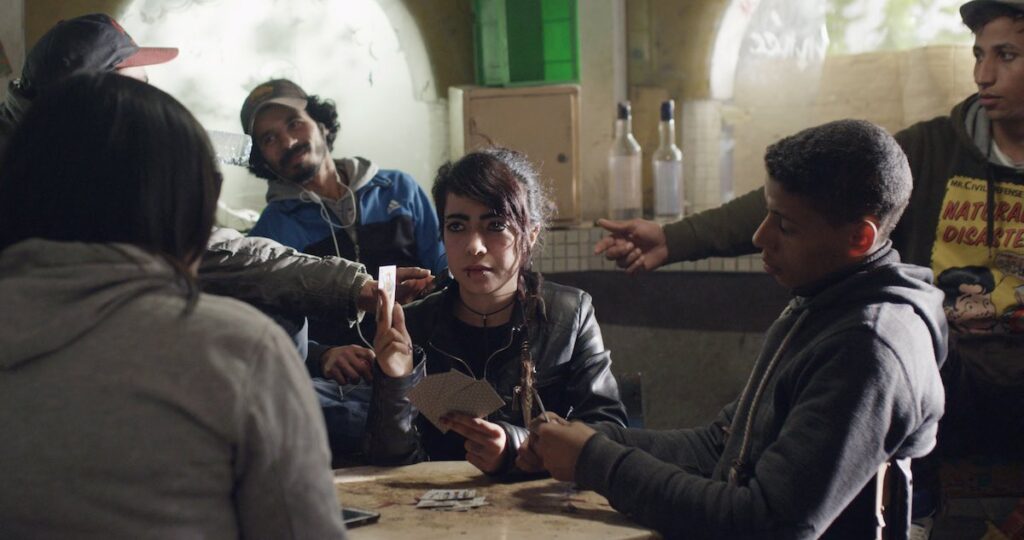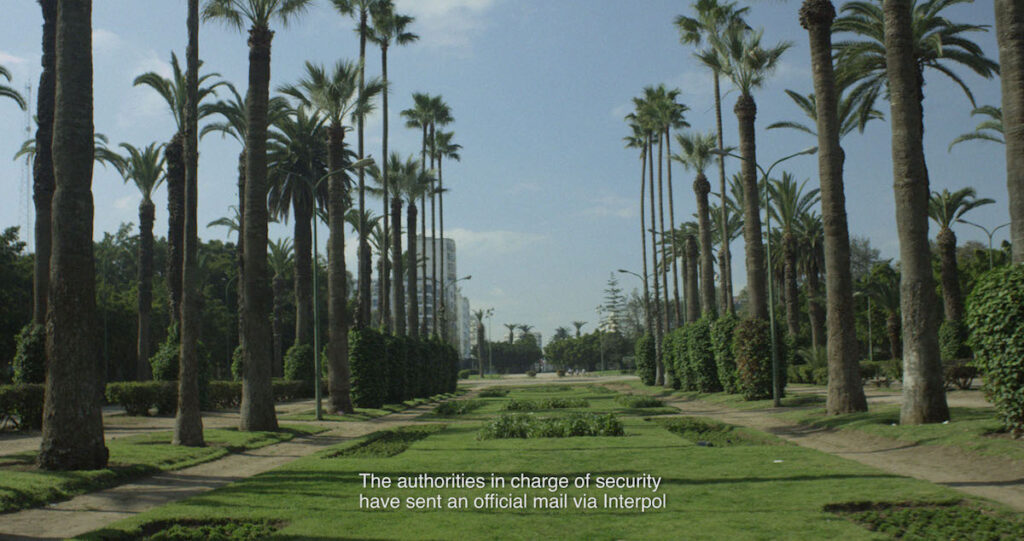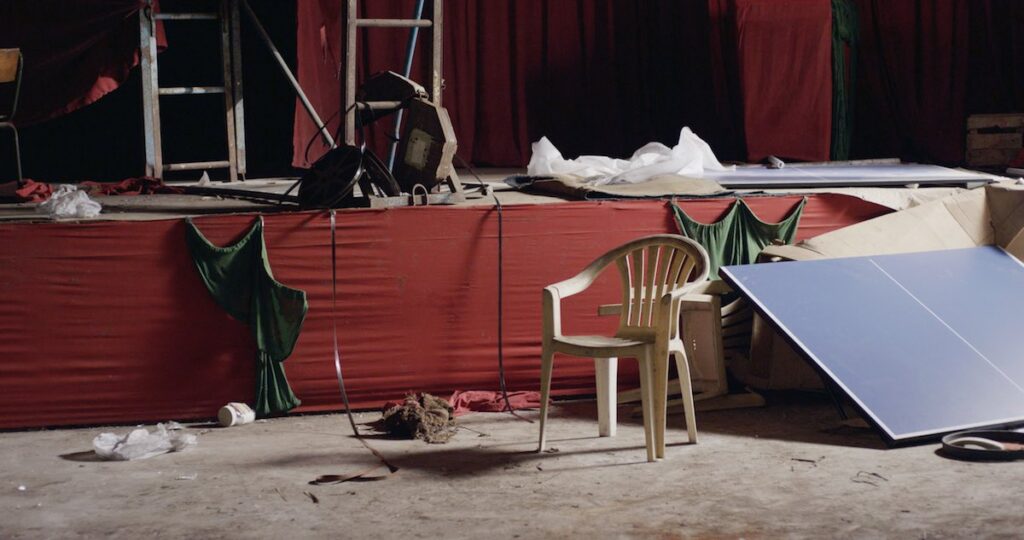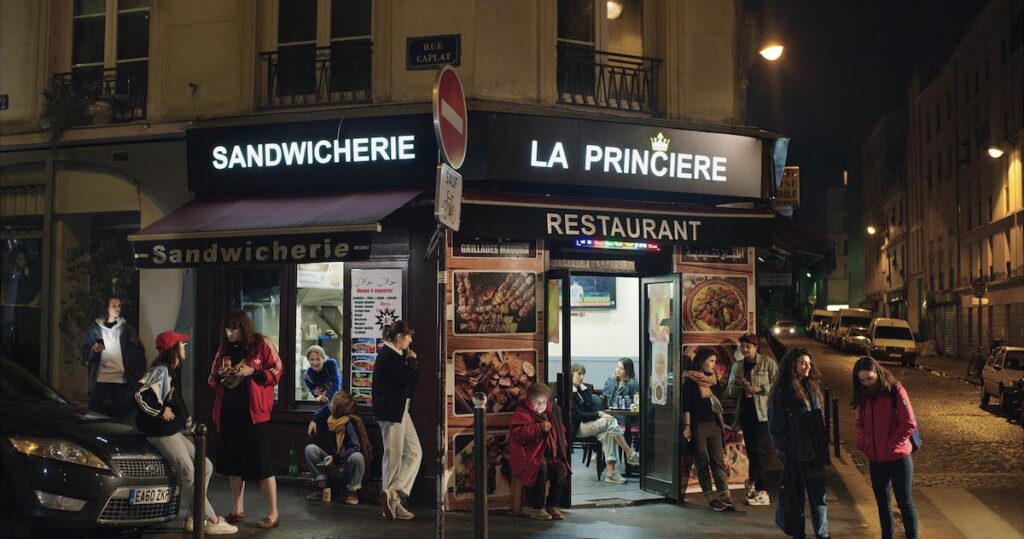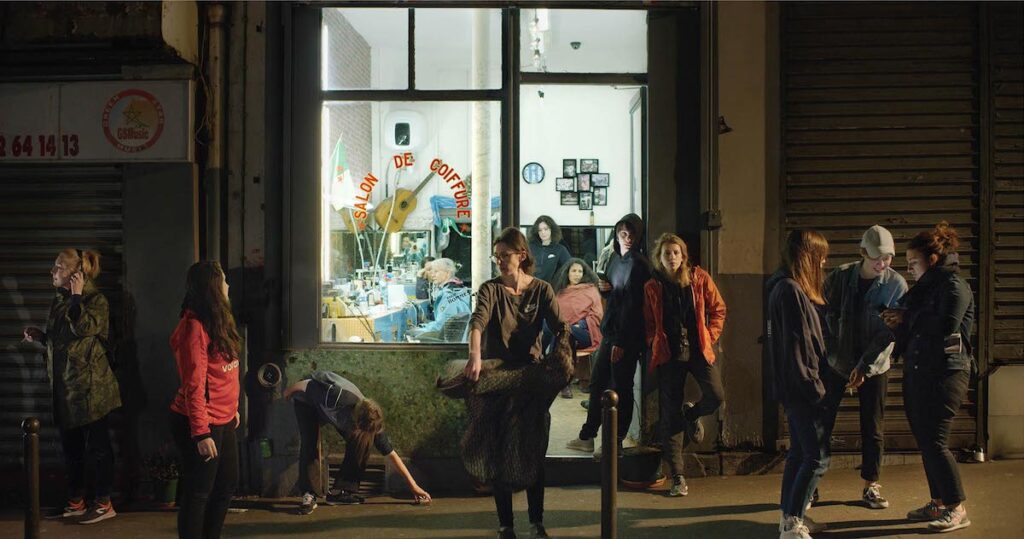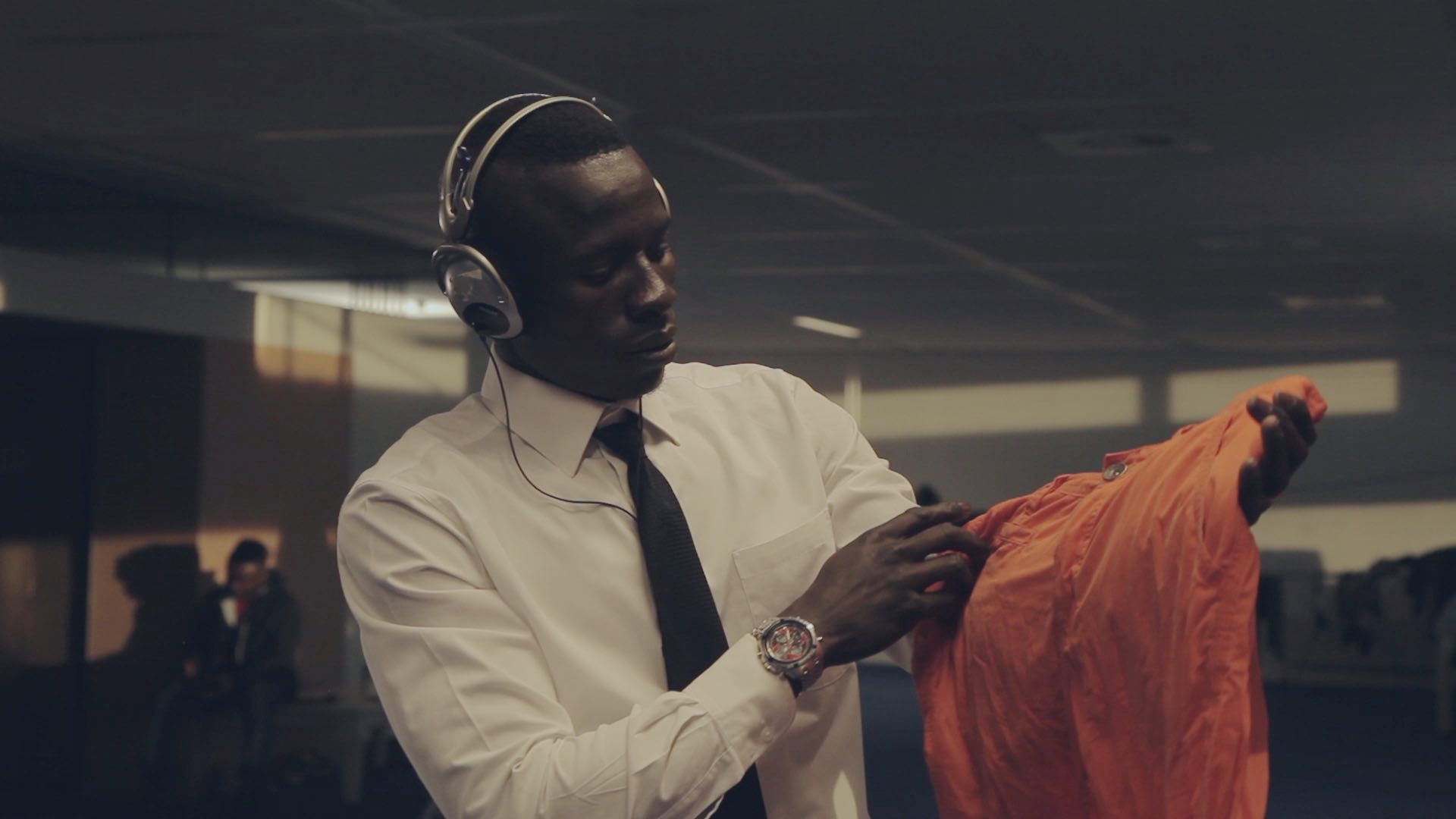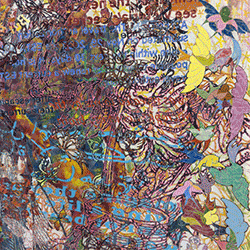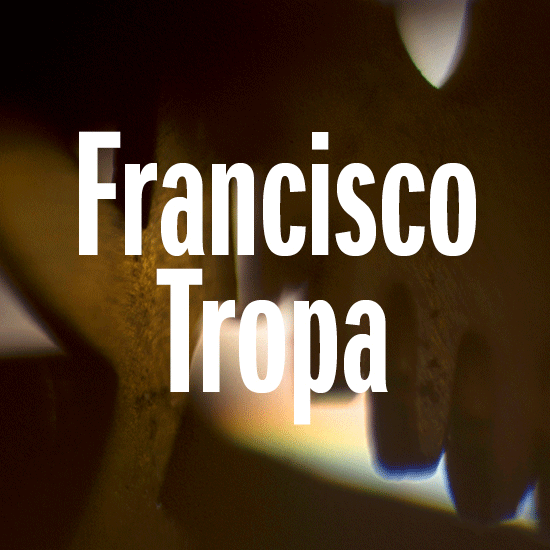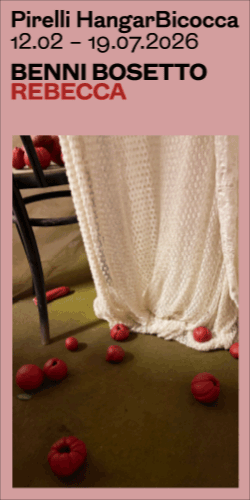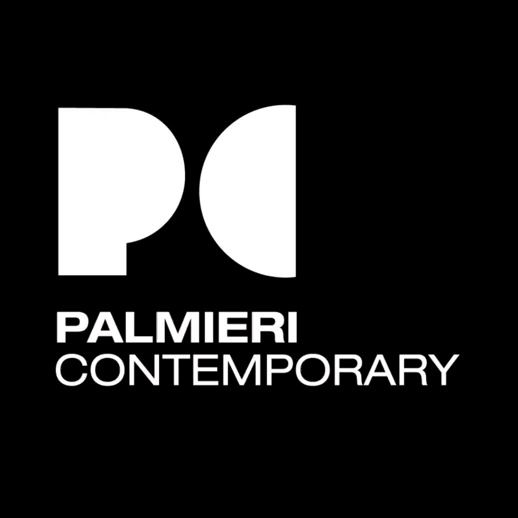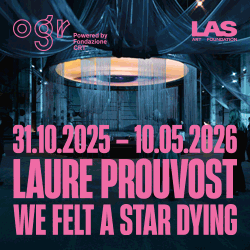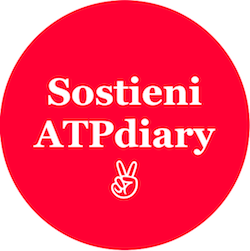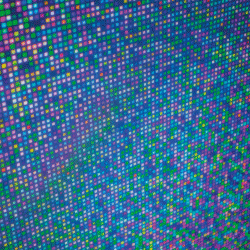English version below —
Dopo la sua partecipazione a VISIO – European Programme on Artists’ Moving Images nel 2022, Randa Maroufi (Casablanca 1987) torna a Firenze come protagonista del Focus On della XVIII edizione di Lo Schermo dell’Arte.
In programma cinque film realizzati tra il 2015 e il 2025, tra cui L’MINA (2025), premiato con il Leitz Cine Discovery Prize for Short Film alla Semaine de la Critique dell’ultimo Festival di Cannes. In sala dal 13 novembre anche The Park (2015), Stand-by Office (2017), Barbès (2019) e Bab Sebta (2019).
Nei suoi lavori, Maroufi esplora temi complessi come gli stereotipi di genere, la vita nelle miniere e nelle zone di confine, traducendoli in lente e accurate riflessioni. Spesso sviluppati in stretta collaborazione con comunità locali, i suoi film si servono di effetti speciali e altri espedenti per alterare la percezione di spazio e tempo, invitando lo spettatore a rallentare lo sguardo e ritrovare il ritmo necessario per comprendere la densità e la delicatezza delle storie narrate.
In occasione del festival abbiamo fatto qualche domanda all’artista —

Arianna Canalicchio: Qual è il suo rapporto con il festival Lo schermo dell’arte?
Randa Maroufi: Sono venuta a conoscenza del festival grazie al mio incontro, alcuni anni fa, con Leonardo Bigazzi, che faceva parte del comitato di acquisizione del FRAC Bretagne (Francia). Il FRAC aveva acquisito il film Barbès (2019). Siamo rimasti in contatto, e la nostra prima collaborazione è avvenuta durante VISIO – European Programme on Artists’ Moving Images nel 2022, un programma di ricerca, residenza e produzione dedicato agli artisti che lavorano con le immagini in movimento, al quale ho partecipato nell’edizione 2022 con il mio progetto L’mina (2025). In seguito, Leonardo è diventato co-produttore del film.
AC: Com’è tornare a Lo Schermo dell’Arte dopo la partecipazione a VISIO nel 2022?
RM: La mia partecipazione a VISIO ha portato incontri meravigliosi e scambi significativi, alcuni dei quali si sono trasformati in amicizie. Sono entusiasta di tornare per questa edizione con energia positiva e un autentico desiderio di far crescere la nostra famiglia artistica, e soprattutto di condividere una parte importante dei miei film, tra cui L’mina, che era passato di qui come progetto e, tre anni dopo, ritorna come film completamente realizzato.
Non vedo l’ora di ritrovare amici e alleati, e di contribuire alla vivace comunità creativa che rende questi momenti così preziosi — momenti che ci offrono la possibilità di ripensare il mondo attraverso incontri inaspettati e lo scambio di idee, in un mondo che, purtroppo, non sta attraversando un buon periodo.
AC: Durante i giorni del festival saranno proiettati cinque tuoi lavori. Sebbene affrontino temi diversi, esiste un filo conduttore che li unisce?
RM: Il mio lavoro si basa sulla messa in scena, utilizzando strumenti presi in prestito dal cinema. Nel mio approccio, parto spesso dalla realtà per creare finzioni che raccontano il reale. C’è sempre un punto di partenza: un incontro con un luogo (che spesso diventa un set) o con delle persone (che diventano attori), incontri che avvengono per caso o che provoco intenzionalmente.
AC: Pensi che oggi l’arte possa ancora essere uno strumento di intervento politico?
RM: L’arte è una finestra aperta sulla creazione libera, lontana dal razionalismo nocivo e oppressivo. Non si limita a riflettere il mondo: lo interroga, lo destabilizza e ne reinventa le possibilità. Esplora i territori, reali e immaginari, li definisce e li ridisegna.
L’arte può illuminare tanto quanto può accecare, liberare tanto quanto può alienare. È qui che si rivela la responsabilità dell’artista. Per me, un’arte che si astrae dalle lotte del proprio tempo per inventare chimere, difendendo un’estetica senza posta in gioco, non ripara nulla e serve a ben poco… perché, nel mondo caotico in cui viviamo, l’artista non è un semplice testimone che osserva l’impotenza degli esseri e delle cose. Il suo ruolo richiede protesta, scossa, e la frantumazione degli immaginari collettivi e delle coscienze popolari.
AC: Stai già lavorando a un nuovo film o ad altri progetti?
RM: Mi piace prendermi il mio tempo — un tempo di ricerca e riflessione — per comprendere, ad esempio, le dinamiche di un territorio, trascorrere del tempo con le persone e lasciarmi attraversare da tutto questo prima di iniziare la produzione. Quindi sì, sono sempre pronto a lavorare, ma forse non ancora a produrre immediatamente.
Cover: Stand-by Office (2017) – Randa Maroufi



Interview with Randa Maroufi
What is your relationship with the festival Lo Schermo dell’Arte?
Randa Maroufi: I became aware of the festival through my encounter a few years ago with Leonardo Bigazzi, who was on the acquisition committee of FRAC Bretagne (France). The FRAC acquired the film Barbès (2019). We kept in touch, and our first collaboration took place during the VISIO – European Programme on Artists’ Moving Images in 2022, a research, residency, and production programme dedicated to artists who work with moving images, where I was one of the participating artists in the 2022 edition with my project L’mina (2025). Following this, Leonardo became a co-producer of the film.
What is it like to return after your participation in VISIO in 2022?
RM: My participation in VISIO brought wonderful encounters and meaningful exchanges, some even blossomed into friendships. I’m thrilled to return for this edition with positive energy and a genuine desire to grow our artistic family, and above all to share a large part of my films together, including L’mina, which came through here as a project and, three years later, returns as a fully completed film.
I look forward to connecting with friends and allies, and contributing to the vibrant creative community that makes these moments so precious, moments that give us the chance to rethink the world through unexpected encounters and the exchange of ideas, in a world that, sadly, is not doing so well.
During the festival days, five of your films will be screened. Although they address different themes, do you think there is a thread that connects them?
RM: My work is based on staging using tools borrowed from cinema. In my approach, I often start from reality and create fictions that tell the story of the real. There is always a starting point: an encounter with a place (which often becomes a set) or with individuals (who become actors), encounters that happen by chance or that I deliberately provoke.
Do you believe that art today can still be a tool for political intervention?
RM: Art is a window open to free creation, far from harmful and oppressive rationalism. It does not merely reflect the world; it questions it, destabilizes it, and reinvents other possibilities. It examines territories, both real and imagined, defines them, and redraws them.
Art can enlighten as much as it can blind, liberate as much as it can alienate. It is here that the responsibility of the artist is revealed. For me, art that abstracts itself from the struggles of its time to invent chimeras, defending an aesthetic without stakes, repairs nothing and serves very little… because in the chaotic world we live in, the artist is not a mere witness observing the powerlessness of beings and things. Their role calls for protest, for stirring, and for shattering collective imaginaries and popular consciousness.
Are you already working on a new film or other projects?
RM: I like to take my time, a time for research and reflection, to understand, for example, the dynamics of a territory, spend time with people, and let all of it make me vibrate before starting production. So yes, I’m always ready to work, but maybe not to produce right away.
